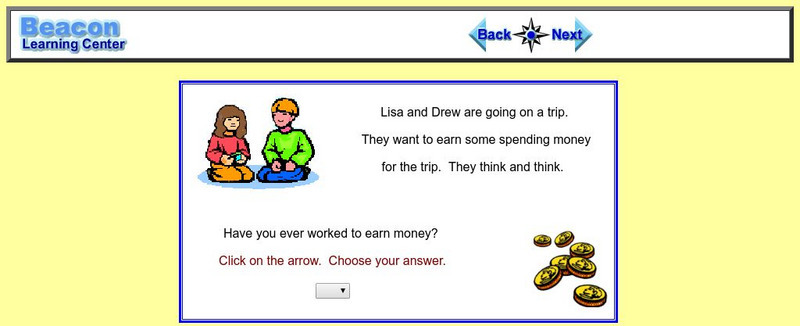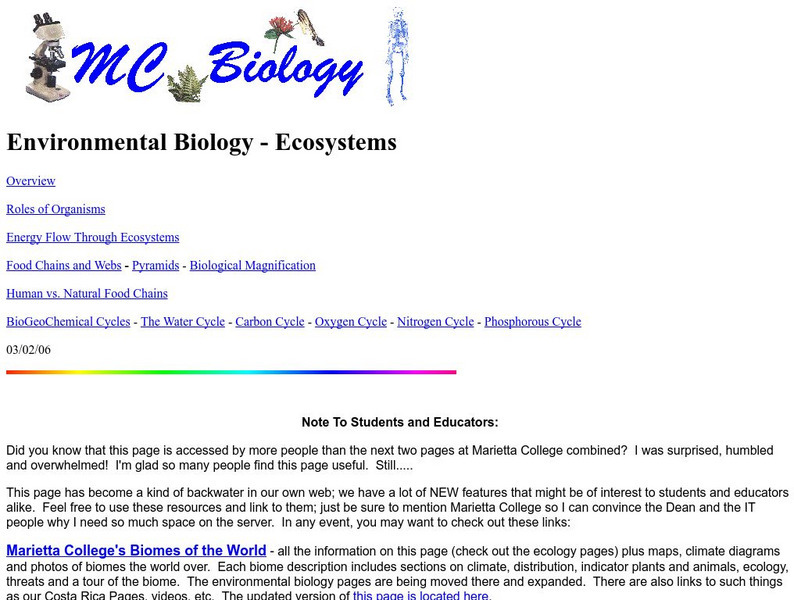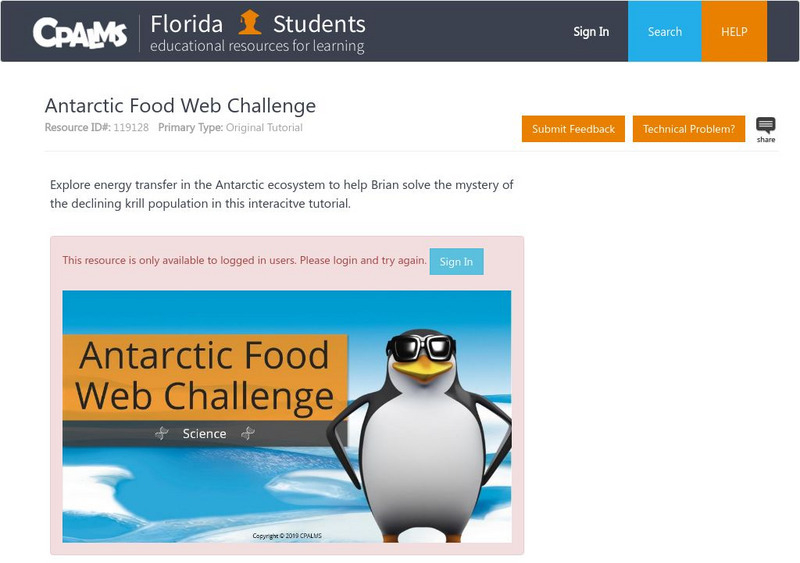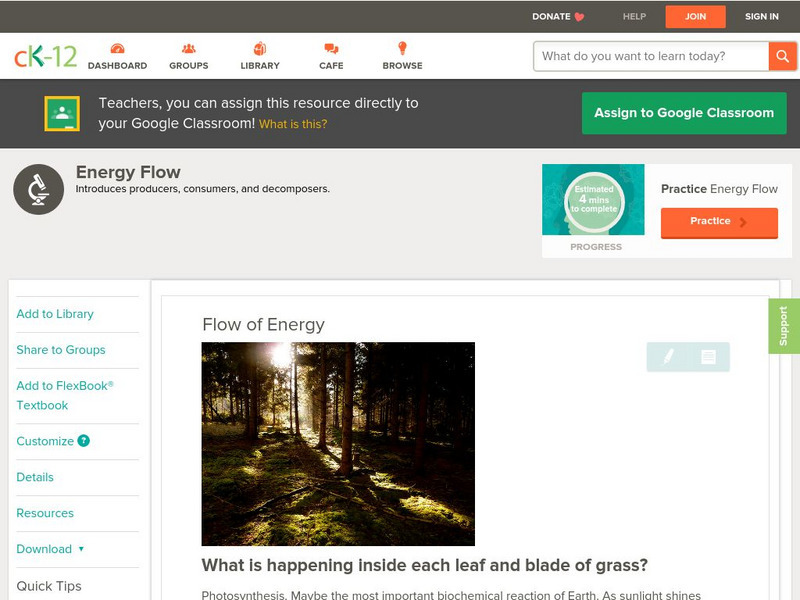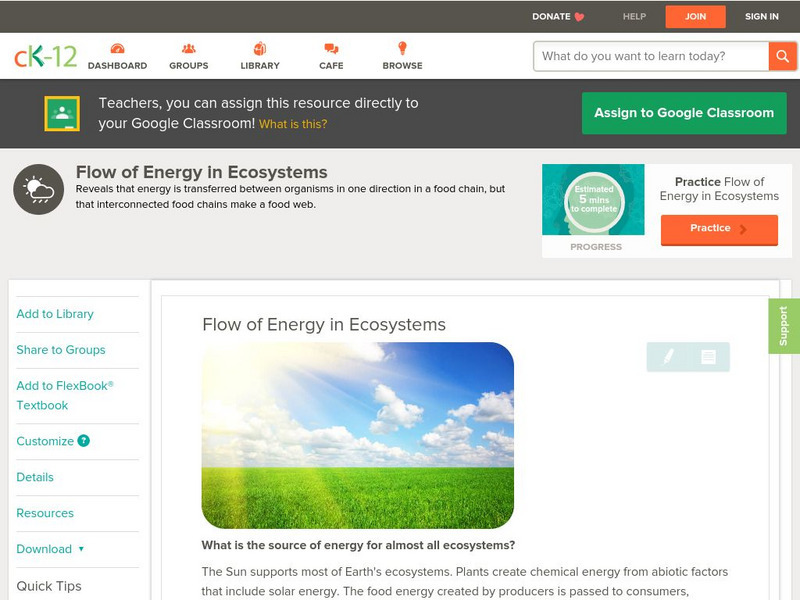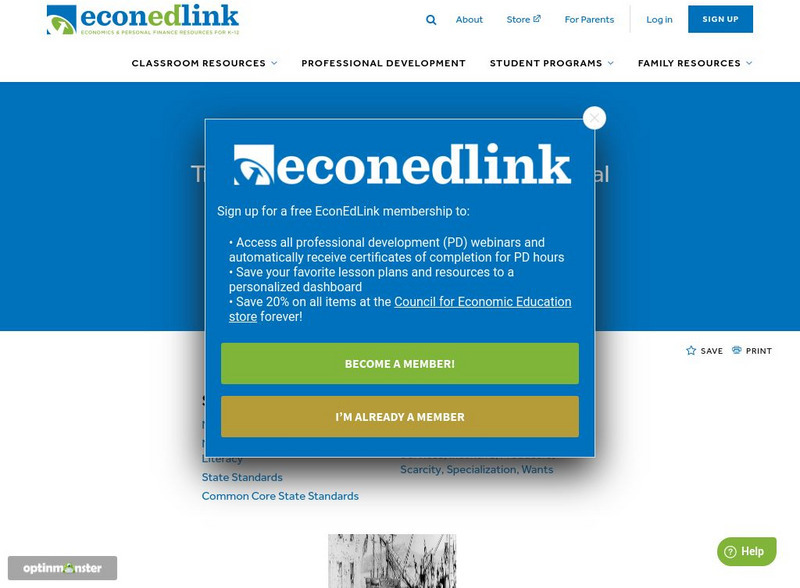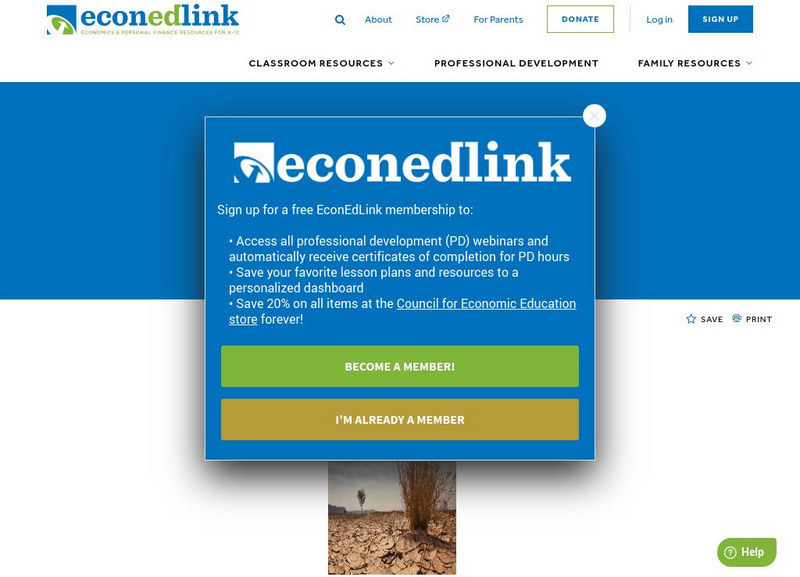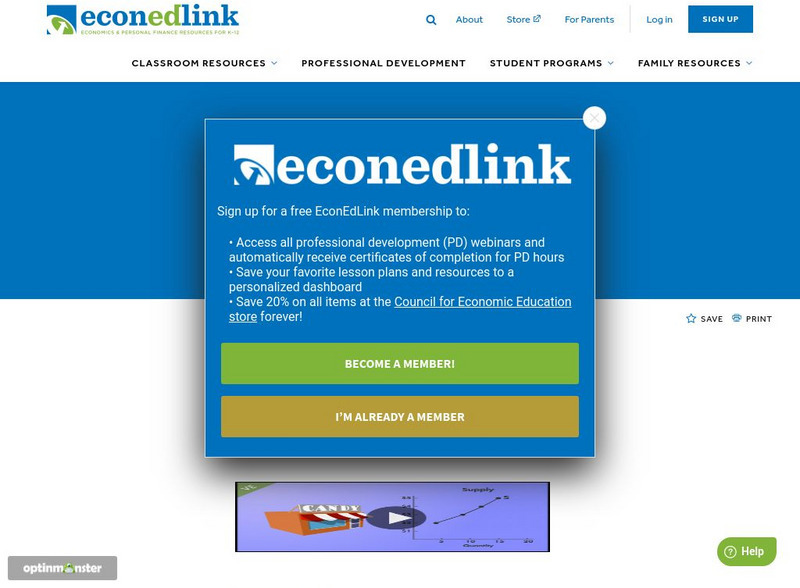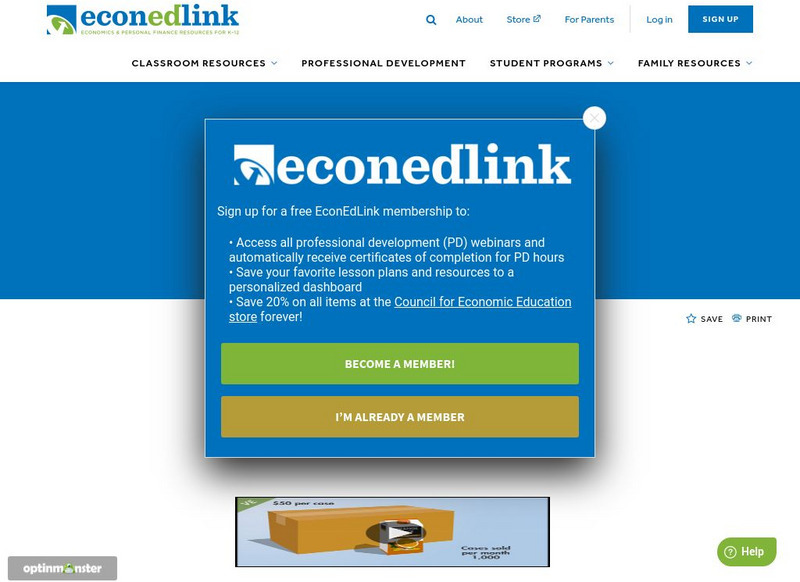Other
Media Line: Interactive Resource for Television Industry
This is a multimedia information center for journalists working (or hoping to work) in television. Great visuals and reader-friendly copy.
iCivics
I Civics: The Market Economy
This lesson teaches the basics about the market economy, including the relationships between consumers and producers, supply and demand, and profit and incentive. Learners learn six traits of a market economy, compare the market economy...
Sheppard Software
Sheppard Software: Parts of the Food Chain: Producers, Consumers, Decomposers
Learn how scientists classify different types of organisms in an ecosystem or in a food chain by their role and function as either a producer, a consumer, or a decomposer. Then play a game that tests your understanding of these important...
Beacon Learning Center
Beacon Learning Center: Business Buddies
Help characters Lisa and Drew learn simple economic principles by choosing what goods they will need for their lemonade stand. Continue exploring economic concepts by determining the producers, services, and consumers associated with the...
Other
Marietta College: Ecosystems
Complete illustrated discussion of energy flow within ecosystems, including discussions of trophic levels, ecological pyramids, food chains and webs, biological magnification, and cycles.
Other
College of Du Page: Energy in an Ecosystem
Ecosystems contain two kinds of commodities: matter (nutrients) and energy. Nutrients cycle through the ecosystem, available for repeated use by organisms. These cycles of use and reuse are called biogeochemical cycles. Energy instead is...
Alabama Learning Exchange
Alex: Producers and Consumers
This instructional activity will teach the difference between producers and consumers. It provides an interactive way for students to get involved and actually become producers and consumers.
Curated OER
National Park Service: Moon Crater Ecosystems Lesson Plan
This is a teacher's guide to a lesson on ecosystems. The objective is for the students to set up their own ecosystem and define the roles of producers, consumers and scavengers.
CPALMS
Florida State University Cpalms: Florida Students: Antarctic Food Web Challenge
Discover how energy flows as part of a food web. Identify the ultimate source of energy for organisms on Earth.
Read Works
Read Works: The Eco Pyramid
[Free Registration/Login Required] This passage shares nonfiction information about ecological pyramids. This passage is a stand-alone curricular piece that reinforces essential reading skills and strategies and establishes scaffolding...
CK-12 Foundation
Ck 12: Biology: Flow of Energy
[Free Registration/Login may be required to access all resource tools.] Describes how energy flows through an ecosystem.
CK-12 Foundation
Ck 12: Earth Science: Flow of Energy in Ecosystems
[Free Registration/Login may be required to access all resource tools.] Describes how energy is transfered from one organism to another.
Planet Pals
Planet Pals: The Food Chain
Omnivores, herbivores and carnivores are waiting for you. The food chain comes to life at this friendly site.
Council for Economic Education
Econ Ed Link: Clipping Coupons
Explore this website to find out how and why consumers make choices on what products to buy. Learn how producers entice consumers into buying their products. This is a very informative lesson plan.
Council for Economic Education
Econ Ed Link: How Labor Got Its Day
If you asked students what comes to mind first when they think of Labor Day, what do you think they would say? The last days of summer? A family picnic? Shopping the Labor Day sales? The purpose of this lesson is to broaden and deepen...
Council for Economic Education
Econ Ed Link: Hey Pop!
One of the best sounds and smells is fresh popcorn! At the movies, at the fair, or at home, everyone likes to munch on popcorn. What is your favorite brand? Is the most expensive the best? You will conduct a taste test to find out. You...
Council for Economic Education
Econ Ed Link: Hey, Mom! What's for Breakfast?
In this lesson students working in cooperative groups will: 1.Discuss food items they consume for breakfast. 2.Investigate elements of foreign culture, particularly food. 3.Use map skills to locate selected foreign nations. 4.Increase...
Council for Economic Education
Econ Ed Link: From Butterflies to Buffaloes
Nature tourism, also known as ecotourism, is a fast growing segment of the tourism industry. In this instructional activity, students learn what ecotourism is and explore how conservation of our natural resources can be profitable.
Council for Economic Education
Econ Ed Link: Us History: Inventors & Entrepreneurs
Students will learn the difference between inventors and entrepreneurs. From talking with adults they will learn some of the benefits inventors and entrepreneurs have provided for society in the last 40 years.
Council for Economic Education
Econ Ed Link: Trouble Is Brewing in Boston: "Colonial Voices Hear Them Speak"
It's December 16, 1773 and many of the citizens of Boston are furious with King George's new tax on tea. Young Ethan, a printer's errand boy, has been given the task of conveying information concerning an upcoming protest meeting. As he...
Council for Economic Education
Econ Ed Link: Clipping Coupons
In this lesson, students will calculate savings for different products when using coupons. They will also decide what factors will influence the choices they make when choosing products.
Council for Economic Education
Econ Ed Link: Dry as a Bone
This lesson examines the current state of drought in the United States and the economic impact of drought on local communities.
Council for Economic Education
Econedlink: Supply
This video teaches the concept of Supply. Supply refers to a relationship between price and the quantity of a good or service that firms are willing to produce. The website contains an interactive quiz and links for related lesson plans.
Council for Economic Education
Econedlink: Profit Video and Quiz
This video teaches the concept of Profit. Profit is income received for entrepreneurial skills or risk taking and is calculated by subtracting a firm's costs of producing a good or service from the revenues received from selling the good...





